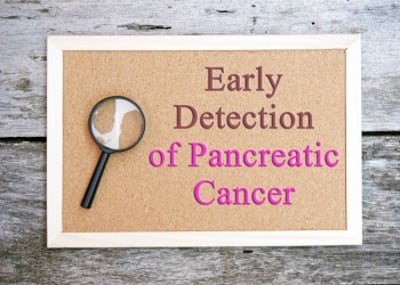Get notified of page updates
Pancreatic Cancer Early Detection Program

Glossary on
off
About the Study
NOTE: This study is no longer recruiting patients.
This is a study looking at esophageal as a screening for pancreatic cancer in high risk individuals. The study will enroll people with an inherited risk for cancer due to a or mutation with or without a family history of pancreatic cancer. The study will also enroll people with a first- or with pancreatic cancer with (, , , , ) or any of the following mutations , P53, , , or .
This Study is Open To:
NOTE: This study is no longer recruiting patients.
This Study is NOT Open To:
NOTE: This study is no longer recruiting patients.
What the Study Involves
Enrolled subjects will undergo Endoscopic (EUS) alternating with Magnetic Resonance Imaging (), every six to 12 months, for up to 5 years.
Study Lead Investigator
Principal Investigator: Joshua P Raff, MD
Study Contact Information: